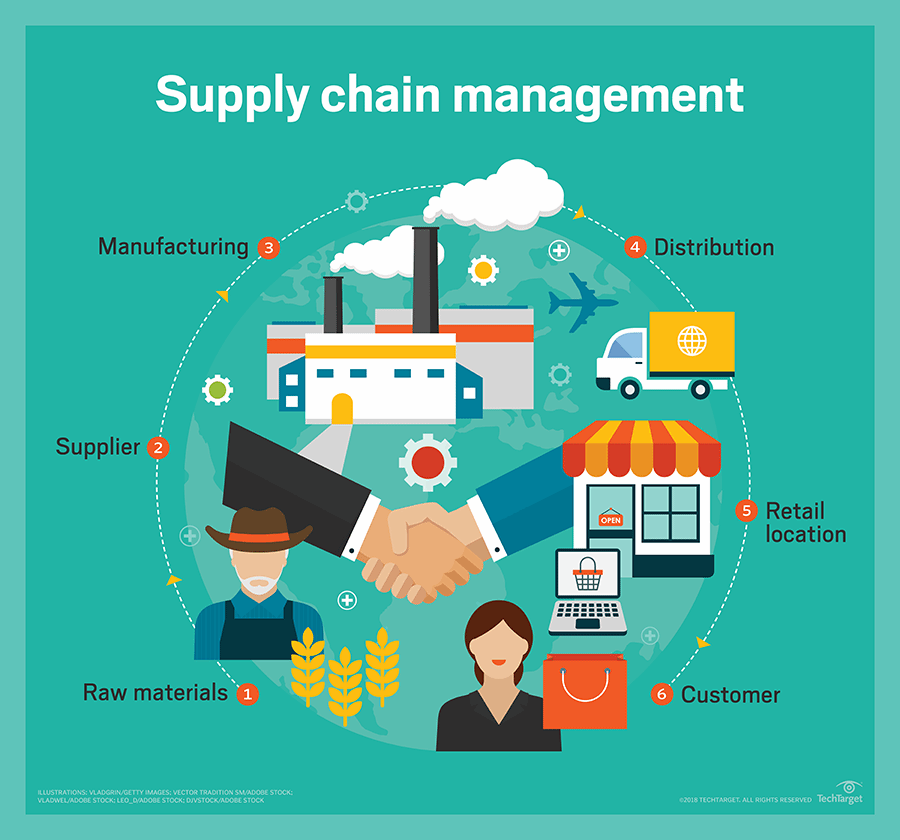The global Commodity Supply Chain Management Solution Market is set for a significant expansion over the next decade. In 2022, the market was valued at US$ 2,655 million and is estimated to grow to US$ 2,955 million by the end of 2023. With technological advancements and increasing demand for real-time data and analytics in supply chain management, the market is forecasted to reach a staggering US$ 9,971.9 million by 2033, reflecting a compound annual growth rate (CAGR) of 12.9% from 2023 to 2033.
Historically, the market exhibited a steady growth rate of 10.8% CAGR from 2018 to 2022, driven by digitalization efforts across industries and the increasing need to optimize commodity supply chains. The market is poised to evolve further with the rise of advanced technologies like AI and blockchain.
Key Takeaways from the Market Study:
- The global Commodity Supply Chain Management Solution Market is projected to grow from US$ 2,955 million in 2023 to US$ 9,971.9 million by 2033.
- The market is expected to witness a robust CAGR of 12.9% between 2023 and 2033.
- AI, machine learning, and blockchain technologies are playing a pivotal role in shaping supply chain solutions.
- The historical growth rate of the market from 2018 to 2022 was recorded at 10.8% CAGR.
- Increasing focus on real-time supply chain visibility and demand forecasting will drive market adoption.
Drivers and Opportunities:
The Commodity Supply Chain Management Solution Market is primarily driven by the increasing need for real-time supply chain visibility, which helps businesses mitigate risks and ensure better decision-making. With globalization and the complexity of supply chains, the demand for advanced solutions is rising.
Emerging technologies such as artificial intelligence (AI) and machine learning (ML) are expected to significantly enhance supply chain processes, from demand forecasting to logistics management. Blockchain technology is also creating opportunities for more transparent and efficient supply chains by improving traceability and reducing fraud risks.
Furthermore, the growing focus on sustainability and regulatory compliance is pushing companies to adopt advanced supply chain management solutions that offer better resource planning and inventory control.
Component Insights:
The Commodity Supply Chain Management Solution Market consists of various components, including software platforms, hardware solutions, and services. The software segment, which includes supply chain planning, execution, and analytics platforms, holds the largest market share. It is expected to continue dominating the market, driven by the rising demand for automated and AI-powered tools to optimize commodity movement, forecasting, and inventory management.
Services such as consulting, implementation, and maintenance are also witnessing increased demand as companies seek to integrate sophisticated supply chain solutions tailored to their specific needs.
Application Insights:
In terms of application, the market serves a variety of industries, including manufacturing, agriculture, energy, mining, and transportation. The manufacturing and energy sectors are currently the leading end-users of supply chain management solutions due to their complex, multi-tiered supply chains.
However, the agriculture and mining sectors are also seeing rapid adoption of advanced supply chain tools to improve commodity tracking, demand forecasting, and regulatory compliance, all of which are critical in today’s volatile market environment.
Deployment Insights:
Cloud-based solutions have gained significant traction in recent years, offering enhanced scalability, flexibility, and cost-efficiency. On-premises solutions remain popular among larger enterprises that require more control and customization. However, the trend towards hybrid models is growing as businesses look to balance cost savings with robust security measures and better operational control.
The rising adoption of cloud-based supply chain management platforms is expected to continue, driven by the increasing demand for real-time analytics, improved accessibility, and seamless collaboration across global supply chain networks.

Key Companies & Market Share Insights:
Several key players dominate the global Commodity Supply Chain Management Solution Market. These companies are continually enhancing their product offerings and investing in new technologies to maintain their competitive edge. Major players include:
- SAP SE
- Oracle Corporation
- IBM Corporation
- Infor
- Blue Yonder
- Epicor Software Corporation
- Manhattan Associates
These companies collectively hold a significant share of the market and are focusing on strategic partnerships, acquisitions, and research & development to stay ahead in this fast-growing market.
Recent Developments:
- In April 2023, SAP SE launched a new AI-powered supply chain solution aimed at improving demand forecasting and supplier collaboration.
- In June 2023, Oracle Corporation introduced blockchain-enabled solutions for enhanced supply chain transparency and traceability.
- In August 2023, IBM Corporation partnered with leading logistics firms to develop next-generation supply chain solutions using quantum computing and AI for improved decision-making capabilities.
- In September 2023, Blue Yonder announced a major update to its cloud-based supply chain platform, focusing on real-time analytics and sustainability features.
The next decade promises to be a transformative period for the Commodity Supply Chain Management Solution Market, as technological advancements and evolving industry demands reshape how companies manage and optimize their supply chains.

